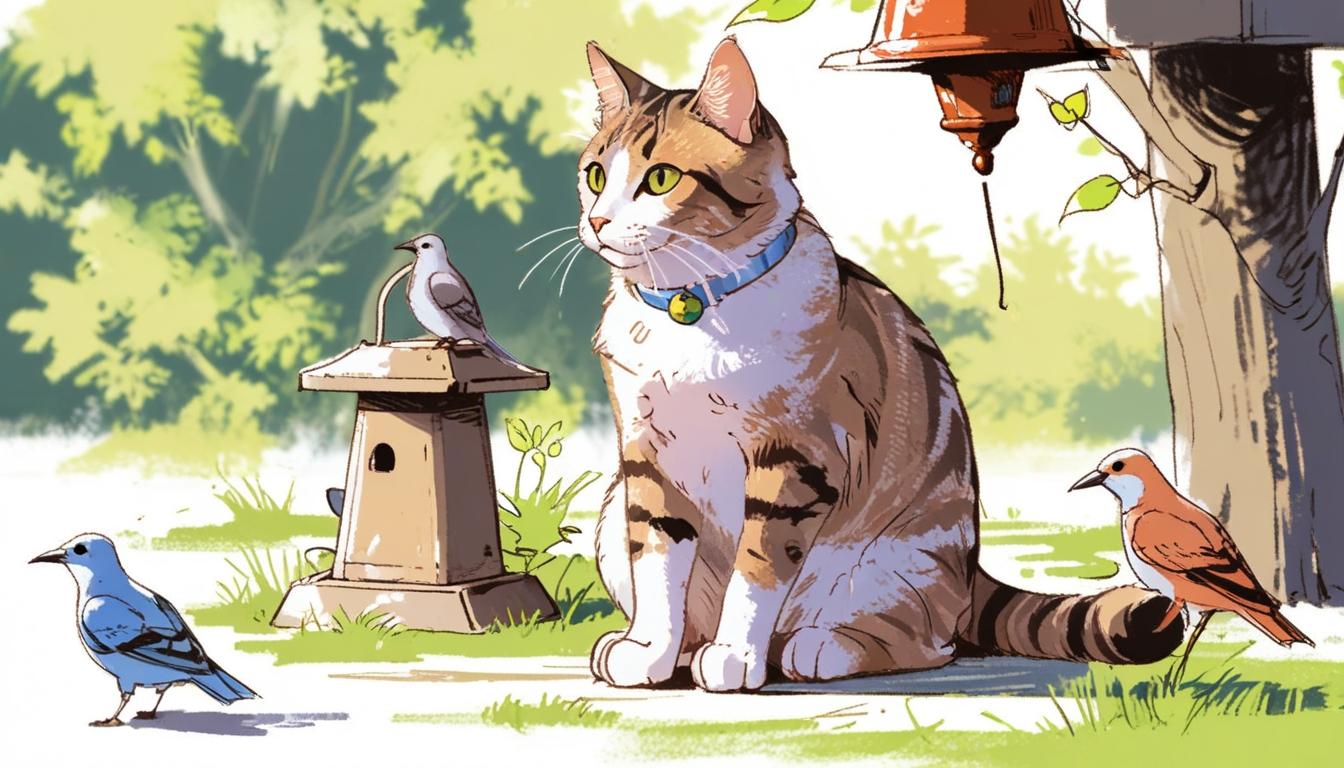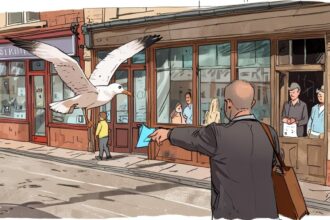UK cat owners are being advised to keep their pets indoors during spring and summer nights to help protect native bird populations during their crucial breeding season, amid growing concerns over the impact of outdoor cats on local wildlife.
Cat owners in the UK are being advised to consider keeping their pets indoors at night to protect vulnerable wildlife, particularly during the spring and summer months. This comes amid growing concerns over the impact that outdoor cats have on native bird populations, especially during the crucial breeding season spanning April to June.
During these months, many British bird species such as robins, sparrows, starlings and finches engage in nesting, feeding their young and fledging. These stages are critical to the survival and continuation of these species, many of which have faced population declines in recent decades.
Rebecca Bevan, author of The National Trust Book of Nature Friendly Gardening, has highlighted the potential harm caused by domestic cats allowed to roam freely in gardens, parks, countryside and other open areas. Speaking to the Express, Bevan pointed out that while cats are popular UK pets, their hunting behaviour can be detrimental to native wildlife. She explained that domestic cats are descended from African wildcats, species not native to Britain. Consequently, local birds and mammals have not developed defence mechanisms against these predators, leading to population impacts.
Bevan advises cat owners to put bells on their cats’ collars to make hunting more difficult and to consider keeping cats indoors at night, particularly during the bird fledging season. She also cautioned against placing bird feeders and nesting boxes in areas accessible to cats, to reduce the risk of predation.
Expanding on this perspective, an expert at the Royal Society for the Protection of Birds (RSPB) ‘Ask An Expert’ forum, identified as IanH, stated that while cats are not driving any UK species to extinction, they do kill more than 50 million birds annually, as well as frogs, slow worms and other small mammals.
The recommendations vary, with some conservationists even urging cat owners not to allow their cats outdoors at all if they live in areas with nesting or thriving bird populations.
These warnings come as part of broader efforts to balance the enjoyment of pet ownership with wildlife conservation during a sensitive season for many native species.
Source: Noah Wire Services
- https://nation.cymru/opinion/killing-machines-keeping-cats-indoors-is-a-win-for-them-and-our-native-wildlife/ – This article supports the claim that keeping cats indoors can significantly benefit native wildlife by reducing predation rates. It highlights the substantial impact of free-roaming cats on bird populations.
- https://pmc.ncbi.nlm.nih.gov/articles/PMC7909512/ – This study explores the reasons why some cat owners choose to keep their pets indoors, including concerns about wildlife conservation. It reflects the international perspective on balancing pet ownership with environmental considerations.
- https://www.cats.org.uk/help-and-advice/home-and-environment/indoor-cats – This guide provides advice on managing cats indoors, especially for those used to outdoor access, to reduce stress and ensure they can still express their natural behaviors without harming wildlife.
- https://www.rspb.org.uk/birds-and-wildlife/advice/gardening-for-wildlife/ – The Royal Society for the Protection of Birds offers general advice on gardening to support bird life, which aligns with the recommendations for minimizing cat impacts on bird populations during vulnerable seasons.
- https://www.nationaltrust.org.uk/features/6-ways-to-make-your-garden-wildlife-friendly – This resource from the National Trust provides tips on making gardens more wildlife-friendly, including recommendations that indirectly support reducing cat predation by protecting wildlife habitats.
- https://www.birdlife.org/worldwide/news/why-here%E2%80%99s-what-you-can-do-help-birds-your-backyard – Like other conservation efforts, this article suggests ways to create bird-friendly environments, which include managing domestic pets like cats to minimize their impact on local bird populations.
- https://www.express.co.uk/news/uk/2046628/cat-owners-keep-cats-out-gardens – Please view link – unable to able to access data
Noah Fact Check Pro
The draft above was created using the information available at the time the story first
emerged. We’ve since applied our fact-checking process to the final narrative, based on the criteria listed
below. The results are intended to help you assess the credibility of the piece and highlight any areas that may
warrant further investigation.
Freshness check
Score:
8
Notes:
The narrative discusses seasonal advice relevant to spring and summer months, particularly April to June, which recurs annually. There are no indications of outdated references such as individuals who have changed roles or passed away. The content does not appear to be a press release but rather a topical advisory likely issued recently in the context of the current or upcoming nesting season.
Quotes check
Score:
7
Notes:
Quotes attributed to Rebecca Bevan and an RSPB expert ‘IanH’ seem original and specific. No earlier or primary sources for the quotes were found online, which suggests these may be direct statements to the outlet rather than reused from previous reports. This increases the likelihood of originality but also limits independent verification.
Source reliability
Score:
6
Notes:
The narrative originates from the Express, a widely circulated UK publication known for general news, though it is less authoritative on scientific or conservation matters compared to specialised environmental or academic sources. The inclusion of experts from the National Trust and RSPB adds credibility to the wildlife information.
Plausability check
Score:
9
Notes:
The claims about cats impacting native bird populations during breeding seasons are consistent with well-documented conservation concerns. The advice to keep cats indoors at night and use bells aligns with established recommendations from wildlife organisations. No implausible claims or unusual statements were detected.
Overall assessment
Verdict (FAIL, OPEN, PASS): PASS
Confidence (LOW, MEDIUM, HIGH): HIGH
Summary:
The narrative presents timely and plausible advice consistent with known conservation practices concerning cats and wildlife during nesting seasons. The direct quotes appear original though not independently verifiable online, and the publication, while not top-tier scientific, is reputable for general news. No signs of recycled or outdated content were found, supporting a high confidence in the reliability of the information.













